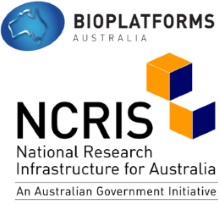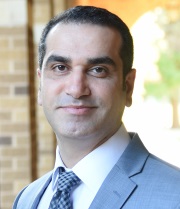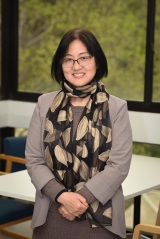Changes at APAF
Changes at APAF 2018
 APAF has undergone some substantial management and structure changes since July 2018, which we highlight here for our clients. APAF is now fully part of Macquarie University, which does not change our customer focus or role. Whilst APAF’s analytical staff remains the same and retains the quality of its existing services the new APAF will now endeavour to offer more innovative services and strengthened opportunities for collaboration both with academia and the industry sectors.
APAF has undergone some substantial management and structure changes since July 2018, which we highlight here for our clients. APAF is now fully part of Macquarie University, which does not change our customer focus or role. Whilst APAF’s analytical staff remains the same and retains the quality of its existing services the new APAF will now endeavour to offer more innovative services and strengthened opportunities for collaboration both with academia and the industry sectors.
 APAF continues to receive significant support from the National Collaborative Research Infrastructure
APAF continues to receive significant support from the National Collaborative Research Infrastructure  Scheme (NCRIS) for Australia via Bio Platforms Australia (BPA). APAF's current funding with BPA has been renewed for the 2018/19 period.
Scheme (NCRIS) for Australia via Bio Platforms Australia (BPA). APAF's current funding with BPA has been renewed for the 2018/19 period.
Prof. Mark Molloy, who led the facility since 2010, has taken on a new role at Sydney University, as Chair of Bowel Cancer Research. APAF wishes Mark much success in this new position. The new Scientific Director is Dr. Mehdi Mirzaei, who is an expert in quantitative proteomics and mass spectrometry. His research focuses on visual neuroscience. He uses the eye and brain proteome in human and animal models for deciphering the mechanisms underlying retinal disorders such as glaucoma, and brain neurodegenerative conditions such as Alzheimer’s disease and Multiple Sclerosis.
 APAF would also like to thank Lindsay Woods and Geoff Randall, who between them have provided more
APAF would also like to thank Lindsay Woods and Geoff Randall, who between them have provided more  than 15 years of service to APAF in marketing and business development roles. Dr. Xiaomin Song now takes a new industry liaison role in which she utilises her extensive analytical chemistry and mass spectrometry expertise.
than 15 years of service to APAF in marketing and business development roles. Dr. Xiaomin Song now takes a new industry liaison role in which she utilises her extensive analytical chemistry and mass spectrometry expertise.
Dr Matthew McKay now fills the mass spectrometry manager role, with a core expertise in mass spectrometry and quantitative proteomics. Matt has played a key role in developing a number of APAF’s MS-based methods in recent years for the global and targeted proteome analysis as well as small molecule and metabolite analysis.
